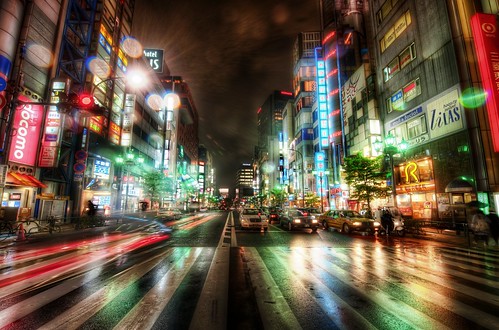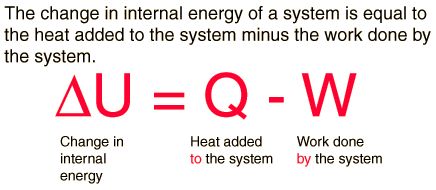We followed the actions of Elon Musk for a couple of years now. Fascinated by his bold steps and insight into the state of our planet and species, and his determination to bring change to it. There are books that try to explain his magic, but we don’t agree with the list presented. For examples the rules in this book are
- Bring hope
- Be a good observer
- Think big
- Play to win
- Move people
The above list is more or less what you can observe if you look at Elon, but it is not a list of what makes him succesfull. We believe that reason comes before what he did in Paypal, Tesla, SpaceX and what he inspired in Solar City.
The core of Elons mind has been educated differently form that of most people. We think that where most people did not have a chance to experience reality autonomously at an early age, and where not encouraged to (because they spend time in front of the TV in a city appartment) the relationship of most people with reality is intermediated by people, parents, teachers, governments. This intermediation causes people to be highly social (they adapt to ideas handed to them in the social context) but also potentially ignorant (because what people believe isn’t necessarily true). Elon believed a lot, he had a family member that flew around the world in a plane exploring, and he probably did some exploring outside and from books himself.
So the first rule is :
1. Autonomously explore. Experience reality as it is. Read to extend your experience.
We know Elon read a lot, which means that his ratio, his inner dialog is very rich and full of references. Kids raised by parents with little time that don’t read won’t have that, except for a lot of social chatter, which is important of course. But the knowledge Elon gained by reading meant he could imagine and reason through more problems. And his interest in meta thinking, so thinking about thinking, or methods of thinking through a problem amplified that. Many people will never learn how to drill down on a problem, because they have never understood or thought about details below the level that they usually deal with.
For some a broken car is a broken car, for others it is a car broken because of a faulty bobine, dirty spak plugs, lack of oil etc. If you don’t like detail you can’t drill down. Tesla himself wrote about his ability to imagine physical devices so vividly he had trouble distinguishing them from reality. They would stick in his mind and be there until he learned something new. That was why he was very active and exploring, and why he could think through problems, which allows much more cost effective design of new inventions (a direction his mother! inspired Tesla towards).
Rule number two seems to work only for some people, because some simply are not born to be inventers or analysts. It is the ability to let go of what you deal with, and look at its constituents, causal orgin, and look at those aspects and dig still further.
2. Learn to analyse problems below the level of day to day interaction.
If you sit in a car and you need to switch on the headlights and the switch is behind you you will think “Who the hell designed this car!”, that is so inconvenient. Once you look at things beyond their day to day appearance you may experience the same. So you read that shrimp are caught in the East Sea (North of Denmark) then flown to Morocco to be hand pealed, then flown back to Holland to be traded, then shipped across the world. That’s insane. If you just look at the shrimp in the supermarket it looks ok. That why so many people don’t mind buying shrimp that have seen more of the world than the buyer. Than you have grey and light coloured shirmp. The light colored one have been soaked in water to make them more volumous. If you buy those you pay a shrimp price for water.
The same happens to chicken breast. If you look with the analist mind you wonder what is going on. This only happens if you actually care. If you don’t care about how chickens are treated or how people pay more for their nutrition than they should, or how the health of people is affected by meat processed with dodgy additives, nothing can be done. You can not be ‘Musk’ succesfull. You have to care about humans, you have to want to be usefull to others. Then when you analyse the world you will find things you want to change. Then you can do that with your heart in it.
3. Care about what happens to humanity
Elon tells us that he thought about what he could do when he was in his twenties (or even earlier). He did this having read the work of many authors that wrote about life and what can be achieved. Elon thought he’d try to do something to prevent human extinction due to climate change, and something to drive the move from fossil to renewables in energy. Anyone with some talent in understanding physics can reason towards the conclusion that there is no reason to stay under this insane fossil regime. It is a massochistic exercise people rallied against in 1900 already. But Elon did not know how when he thought about it.
Fortune struck planet Earth when Elon and his brother Kimbal tried to build an digital version of the Yellow Pages, then Elon started X.com which turned into Paypal. Some of this was Uber style stealing, some of it was clever thinking. Paypal payed you money to start an account, so that people would use it, so it became usefull (because what use is a bank account if nobody else has one).
When Elon sold Paypal he had upwards of $150 mln in cash. He never cared much for banks, stock exchanges. And he had his dreams. He decided to take the initiative on an electric roadster that the original builders did not want to take further, which became the Tesla Roadster. He also looked for ways to drive progress in space flight, and found he could best do this himself. He didn’t actively manage Tesla until it got in trouble.
In both cases Elon did not expect to succeed. The odds are strongly against building a car brand, and space he found out, is hard. Building a spacecraft is a bit like building a machine that has to travel on its own to about 35,786 km while basically being a bomb continuously exploding for several minutes and still cary usefull cargo : a spacecraft. So rule 4 above is patently wrong : Elon did not play to win, he played to lose, but then worked his ass off to win. Probability of success has to be non-zero, then, provided other benificial factors are potentially there to be gained, Elon will go for it.
4. Accept long odds if you believe you can beat them, and maybe even if you don’t
If you have these four principles only one is left to be added to become an Elon Musk type entrepeneur and achiever, and this is persistence, focus, tanacity, unwavering determination. The thing is that if you start from your analysis of reality which is sound because you had real experiences, because you exposed yourself to learn how things actually work, because you adopted methods to make things work (study engineering or engineering texbooks), if you want to do good, and if you accept and understand long odds, then your choices might as well have been those of Elon Musk. We also experience that every time someone asks us why we care about climate change the answer is “How can you not care? Can’t you see how it is killing us?”, most people can’t and that is due in part to nurture, in part to nature. Rule nr. 5 is simple :
5. If you, based on your sound analysis, believe what you want to do is right. Do it. Persistence is a result of lack of fundamental change in the situation that set you on a course of action
There is a rational and irrational part to Elon Musks mind, but he tries to keep it as rational as possible. This is constant work. This means he has to constantly detach and reapply his understanding of what the real basic premises are, not what people believe they are. This is the empirical cycle in the production lines. This is the creation of indicators so that he knows what is going on, what he can optimize. He has made a choice to live by his mind, and this also makes perfect sense. Why live by any other persons rules if you can understand them and see your own rules are wiser, better, more exciting, fullfill you more. If you ask what’s Elon Musks secret sauce, we would say it is not the sauce he pours over things that creates his perspective, but the fact he tasted and worked with reality until he understood how to turn it into a great sauce.




.jpg)
.JPG?itok=Y_9Vibdo)











